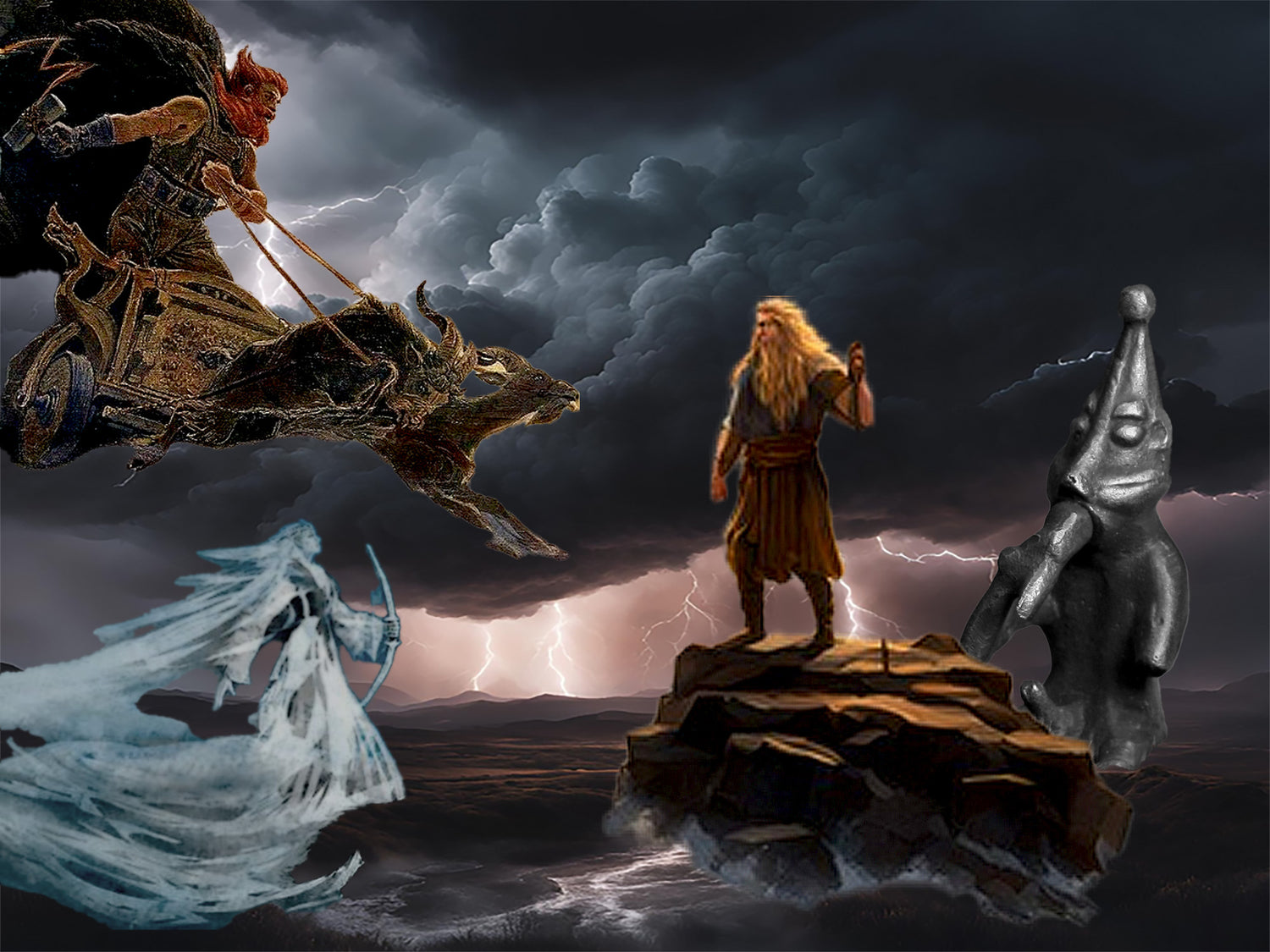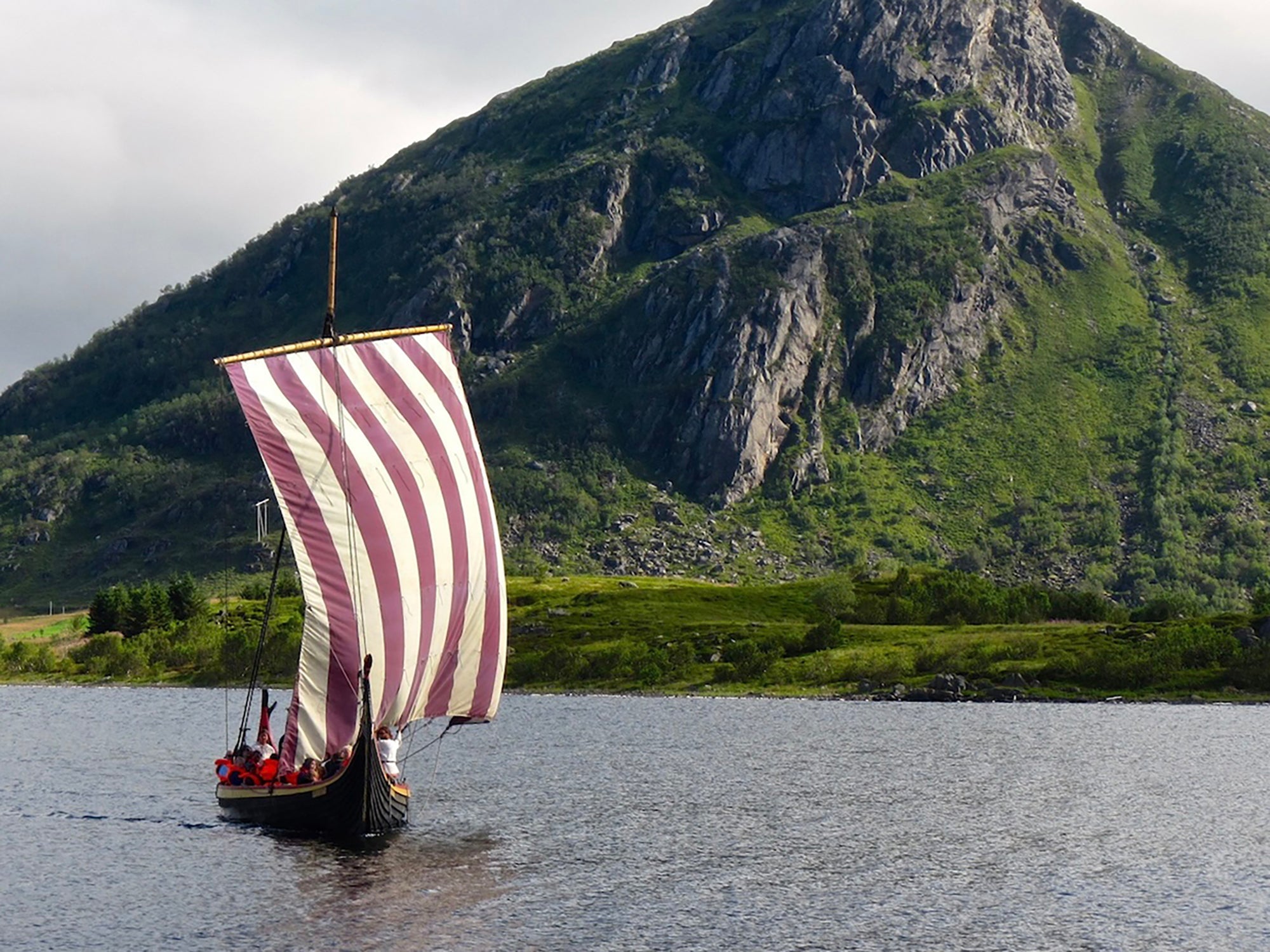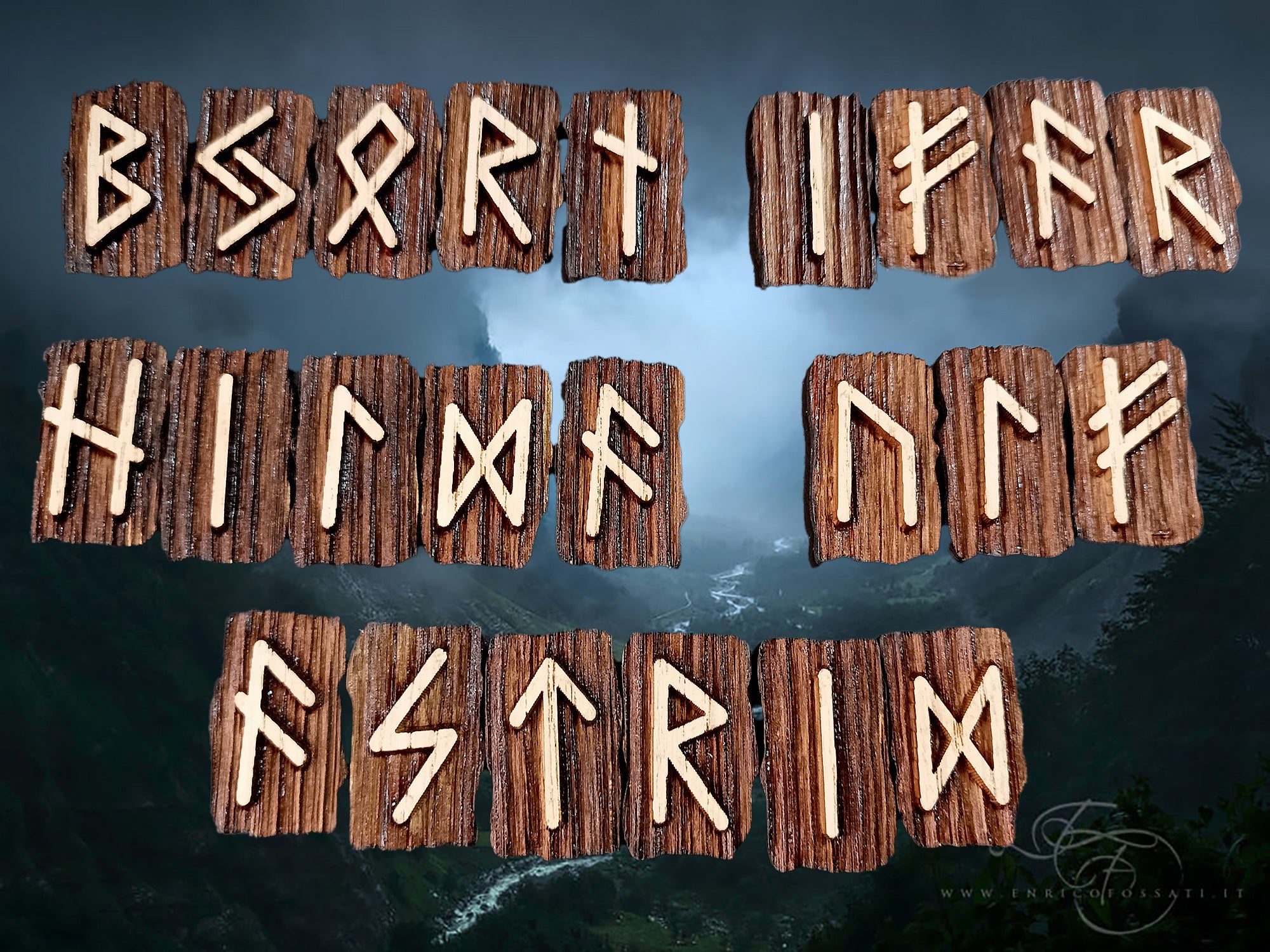Most cultures around the world throughout history have had some kind of deity or spirit that they attributed patterns of weather, tides, and other natural phenomena to; oftentimes, they have multiple. According to modern research and observation, the weather deeply affects the well-being of a society.
For the Vikings specifically, who were semi-nomadic raiders, weather patterns played a massive role in food production and storage, travel, land acquisition, and more. When the typical weather patterns were disrupted - by torrential rains and storms, volcanic eruptions, earthquakes, and other natural disasters - it could lead to widespread devastation. In a time when meteorology was not yet scientifically backed and algorithmically predictable, these disasters could leave people feeling powerless and afraid.
This is where theological explanations come in. Being able to attribute seemingly random natural events to a sentient force, especially one that could be influenced or petitioned, helped people cope with the stress induced by these events and effects. It gave them both something to blame and someone to look to for guidance and hope in the future.
Who were the Norse weather gods?
The Norse people had quite a few weather gods and spirits, but four can be considered the most prominent: Thor, Freyr, Skadi, and Njord.
Thor
Though you may know him as Marvel’s buffed-out superhero, Thor was originally seen as the god of thunder, strongest protector of the gods and most famous hot-headed son of Odin. He did in fact wield the hammer Mjolnir (sometimes spelled Mjollnir), which was gifted to him by his father and could only be held up by someone worth of its power (in the original mythos, this is often because the hammer was impossibly heavy and Thor was the only one physically strong enough to pick it up).
Thor’s myths often revolved around killing giants and defending Asgard from attacks and invasion, though he did have some strange myths (one notably involving him crossdressing and attending a wedding only to slaughter everyone there to get Mjolnir back). Thor was said to cause the thunder when he swung Mjolnir during fights.
Freyr
Freyr was the Norse god of rain and sun, and a fertility god associated with growth and peace. Especially well-worshipped in Sweden, Freyr was the sibling of Freya and a god of the Vanir. In some versions of the myths, he’s the king of the Vanir, taking over from his father Njord and being just as well respected and adored by both the other gods and the residents of Midgard (us).
The Vikings would have venerated Freyr as the bringer of good harvests and peaceful growing seasons. They would also have celebrated and appealed to him during fertility festivals or when trying to conceive.
Skadi
Skadi is the giantess wife of Njord and one of the major antagonists in early Norse myths. She hails from the mountains ruled by her father Thiazi, who was killed by the Aesir. Njord was offered for her husband to placate the raging giantess, though the marriage wasn’t particularly happy, given that Skadi preferred the mountains while Njord preferred the sea. In some versions of the mythos, Skadi splits from Njord and later marries Odin, bearing him several children.
Many places in Scandinavia have been named for Skadi, even to the point of the word potentially having originated from the goddess’s name.
Njord
Njord, as we’ve mentioned, is the husband of Skadi and father of Freyr and Freya and is considered a major god of the sea. Like many cultures, the god of the sea is also given domain over the weather at sea, including the powerful storms that could ruin their raiding ships and kill hundreds. As such, Njord was often revered and invoked by sailors before they set out on their journeys and by the families they left behind, asking for protection and safe travels.
Sources:
https://hraf.yale.edu/why-are-gods-thought-to-cause-weather/
https://panoramaglasslodge.com/a-complete-guide-to-norse-gods-goddesses/
https://viking.style/god-of-storms-the-powerful-norse-deity-of-weather/
https://bavipower.com/blogs/bavipower-viking-blog/who-were-the-weather-gods-in-norse-mythology
https://historycooperative.org/vanir-gods/
https://www.britannica.com/topic/Thor-Germanic-deity
https://www.britannica.com/topic/Freyr
https://en.wikipedia.org/wiki/Freyr
https://www.britannica.com/topic/Skadi
https://www.britannica.com/topic/Njord






